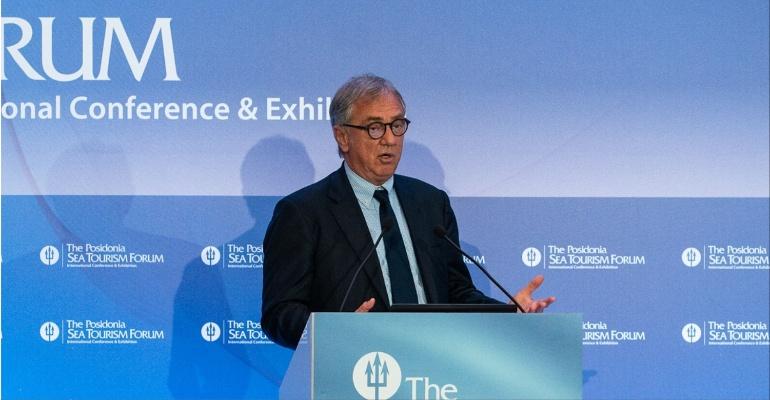After three years of reduced operations, ‘2023 is when we return to our pre-pandemic growth trajectory,’ commented Vago in a keynote speech.
As many as 33m passengers could cruise worldwide this year, exceeding 2019 volumes by over 11% when 29.7m passengers cruised, a prediction the CLIA global chair also shared at last month’s Seatrade Cruise Global in Fort Lauderdale.
He went on to highlight the importance of Europe, of the East Mediterranean and Greece.
‘Europe is the second largest market globally, attracting 21% of the world’s cruise travellers.
'During the downturn, European governments led the way by working collaboratively with us, particularly in the East Med,' Vago noted.
Greece's homeporting growth
Turning to Greece he added, ‘Forty-seven of the 87 CLIA cruise ships that operated in Greece last year homeported, a 54% year-on-year increase.
Homeporting brings the strongest economic benefits for any destination with every cruise tourist at the port of embarkation typically spending more than €400, according to the CLIA chair.
Having developed its homeporting capabilities, the challenge now is for ports, cruise operators, and authorities to create the right infrastructure and operating environment for the long-term.
Port privatisation
To allow smooth operation, infrastructure investment is needed. ‘This means ensuring that the specific needs of cruise operations are considered as part of the port infrastructure development, particularly in the context of the port privatisation process taking place now in Greece,' Vago said.
He talked about ports providing 'smooth and efficient' border control facilities for cruise passengers and crew and the need for the 'right onshore solutions to match the technologies deployed onboard our ships,'
Referring to the EU institutions agreement on FuelEUMaritime reached in April, 'we know 235 ports in the EU must be shore power ready by 2030, with the rest to follow by 2035.
Shore power
‘We need ports to deploy, where feasible, shoreside electricity capability which helps to reduce air emissions to the benefit of local populations.
‘CLIA commends the ongoing efforts of Heraklion and Piraeus to deploy this capability in the short term,’ he commented.
Copyright © 2024. All rights reserved. Seatrade, a trading name of Informa Markets (UK) Limited.
Add Seatrade Cruise News to your Google News feed.  |

